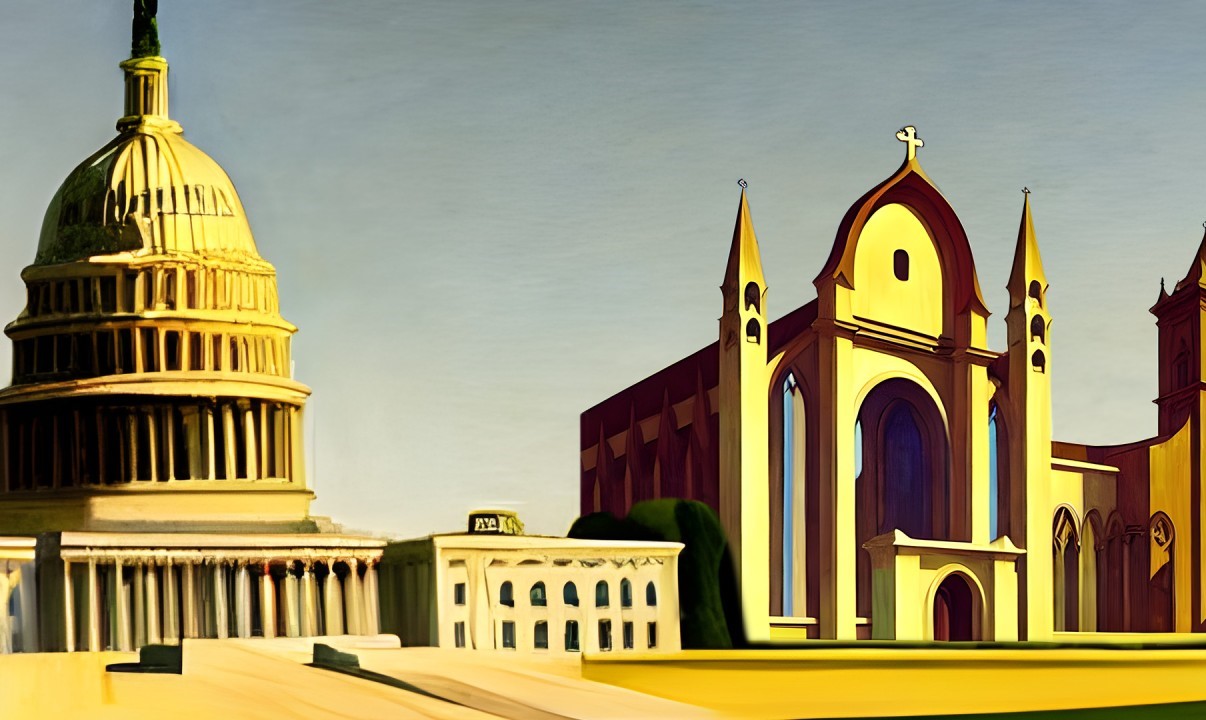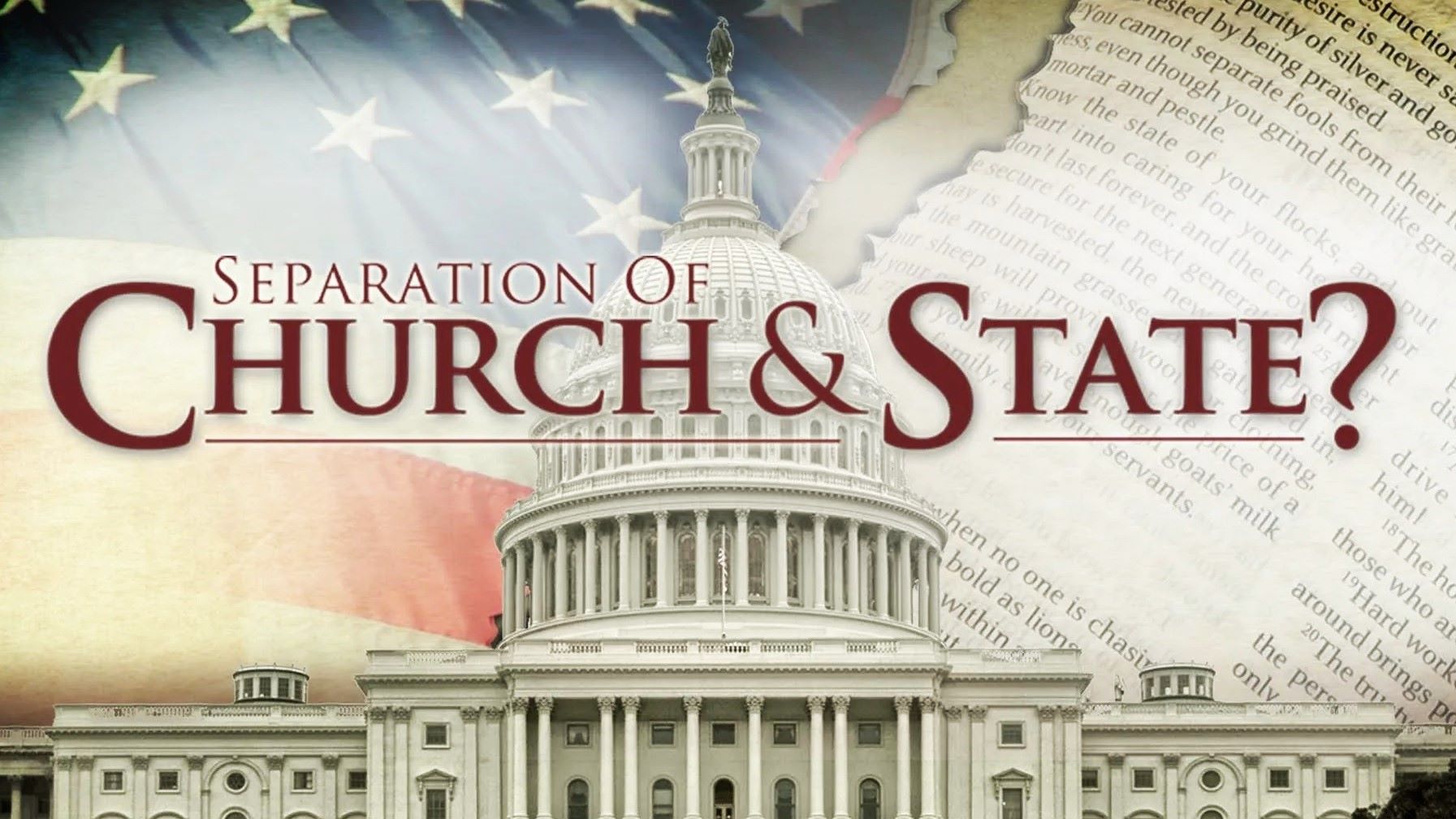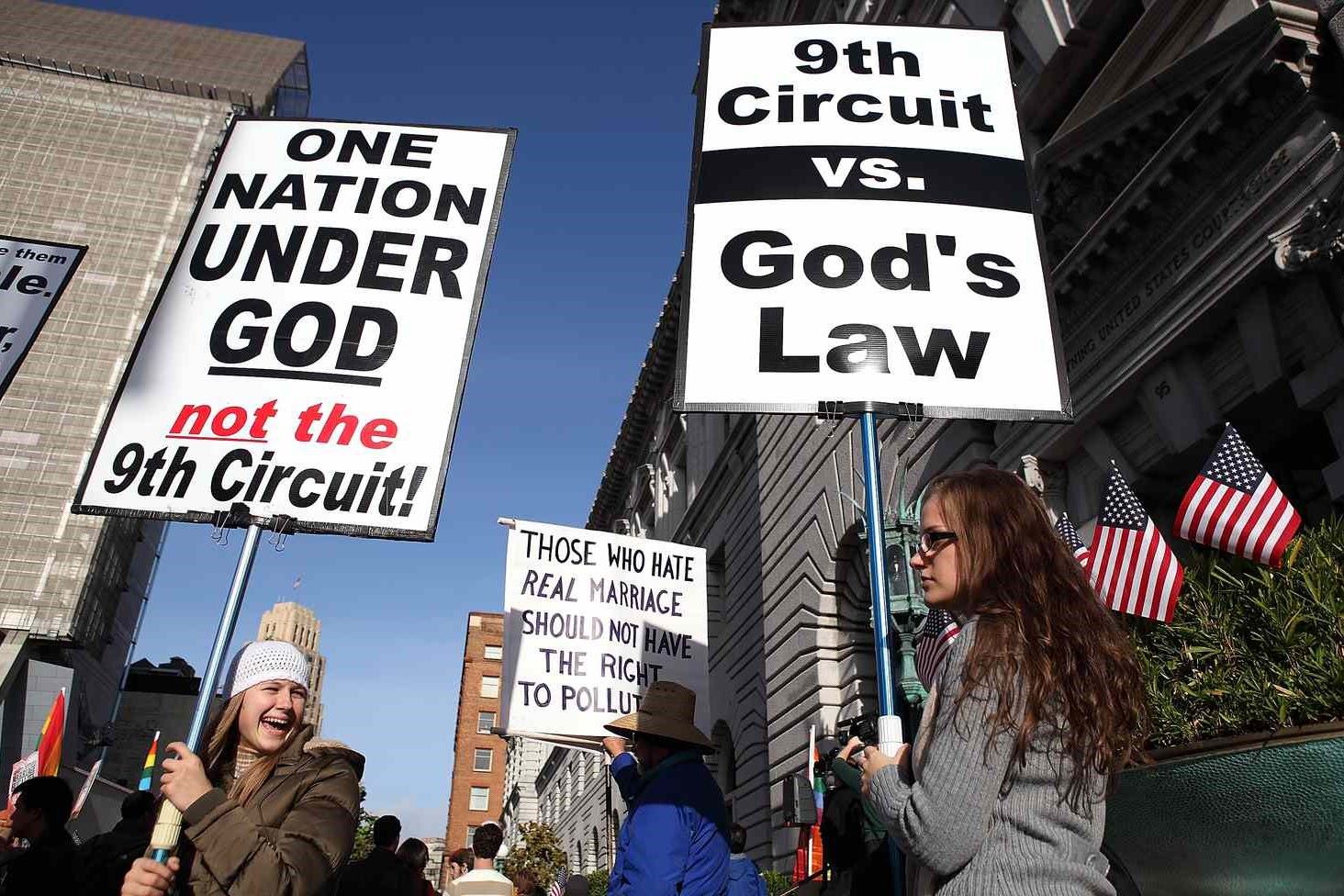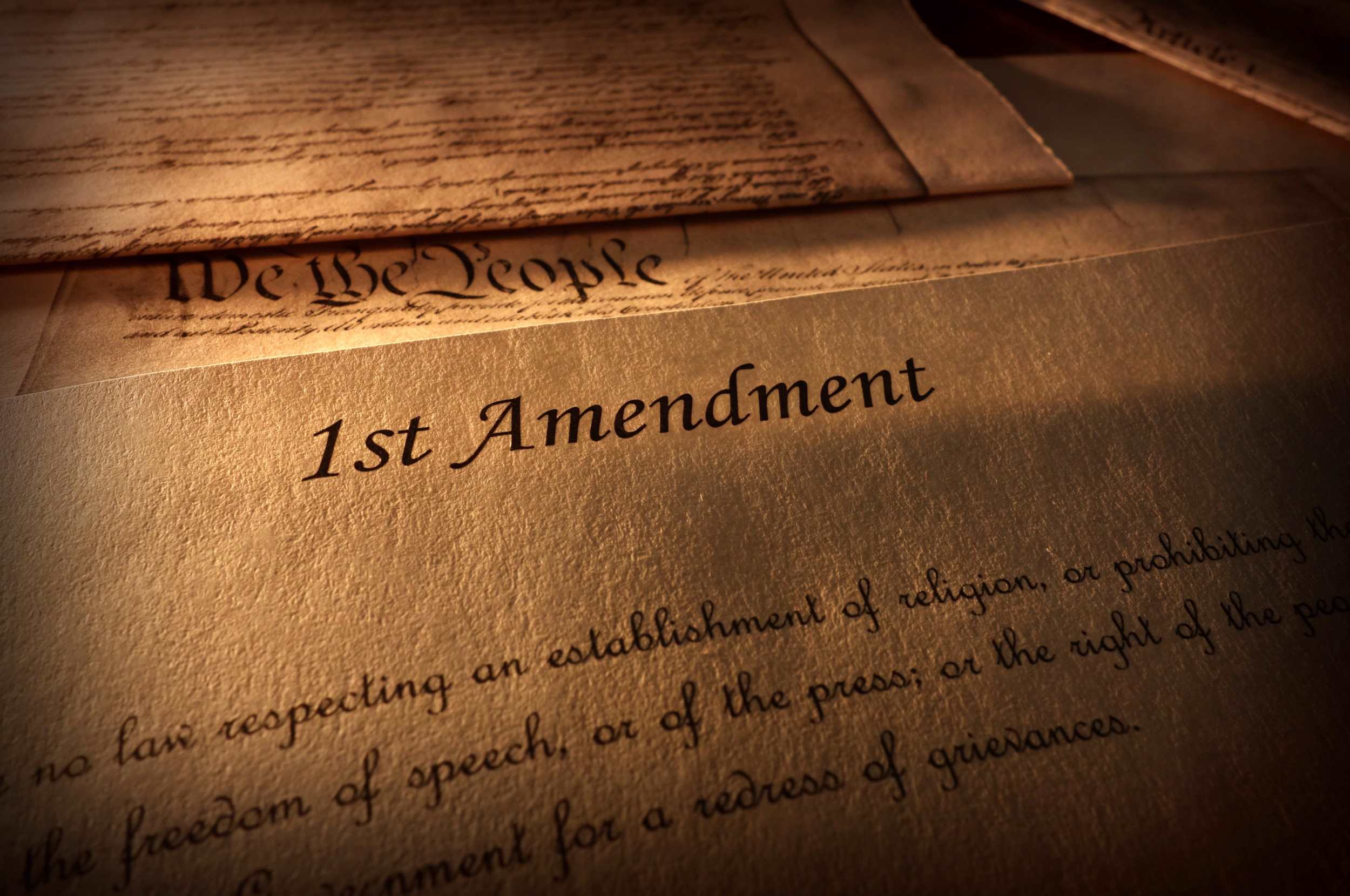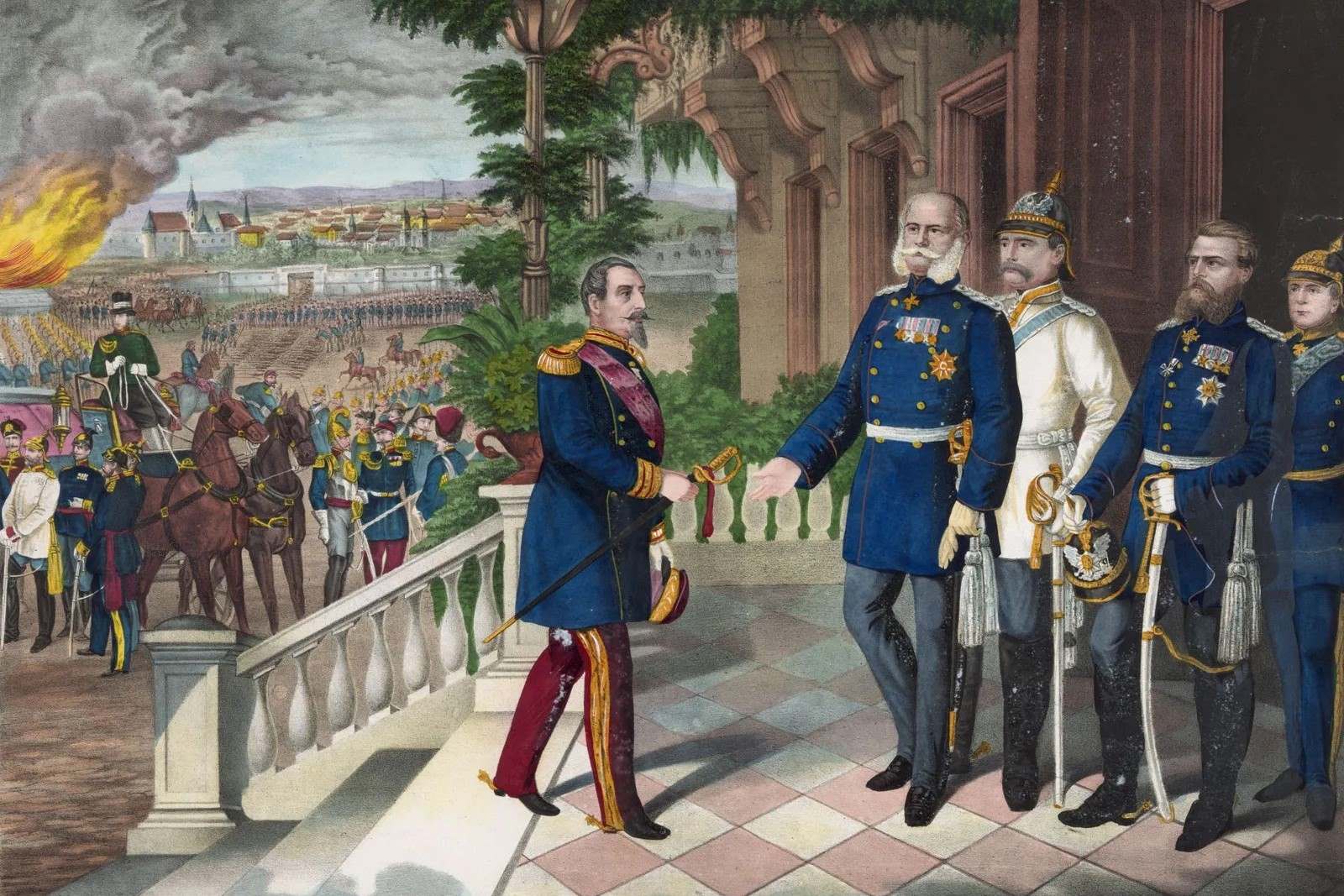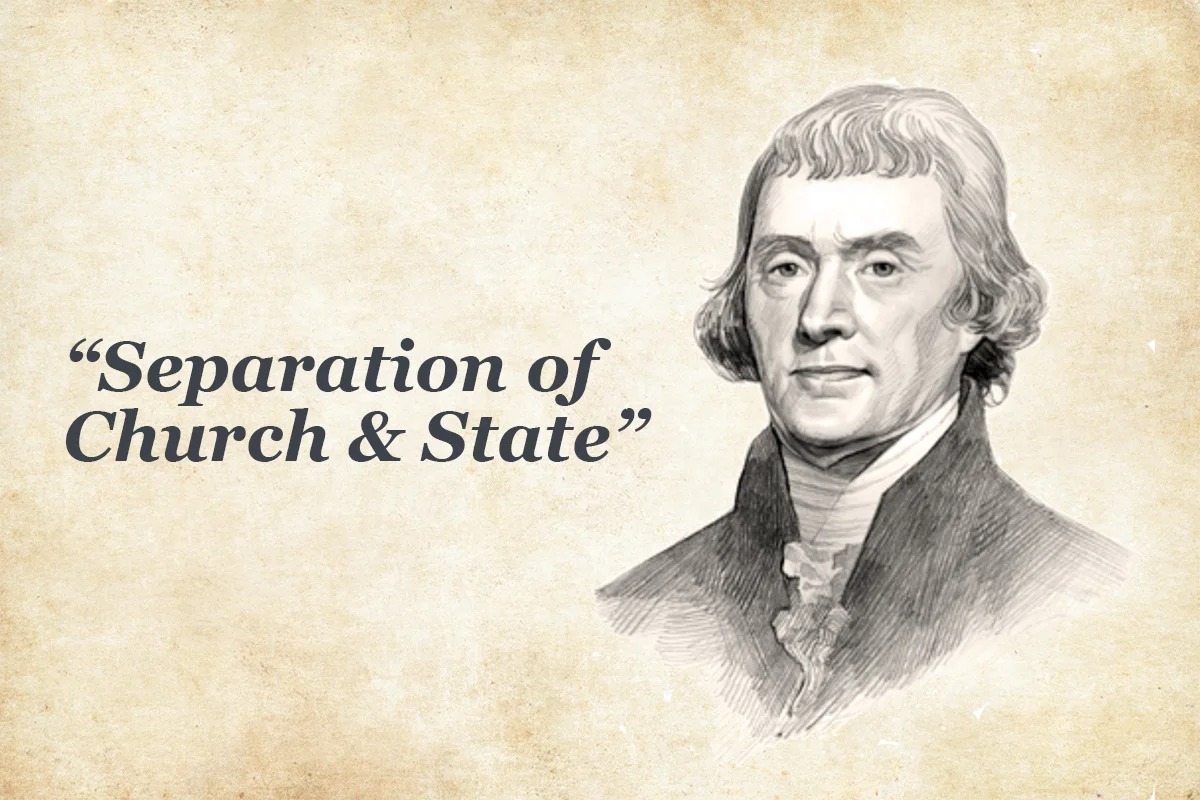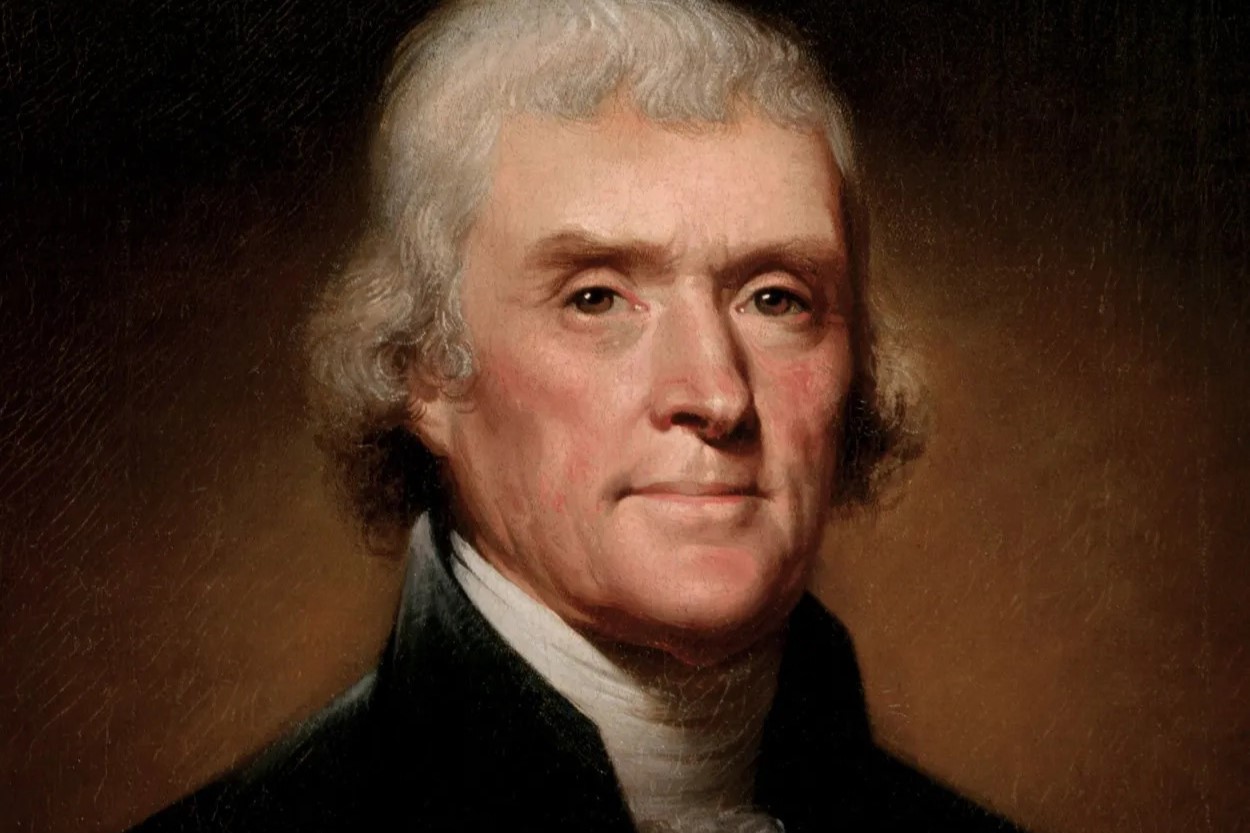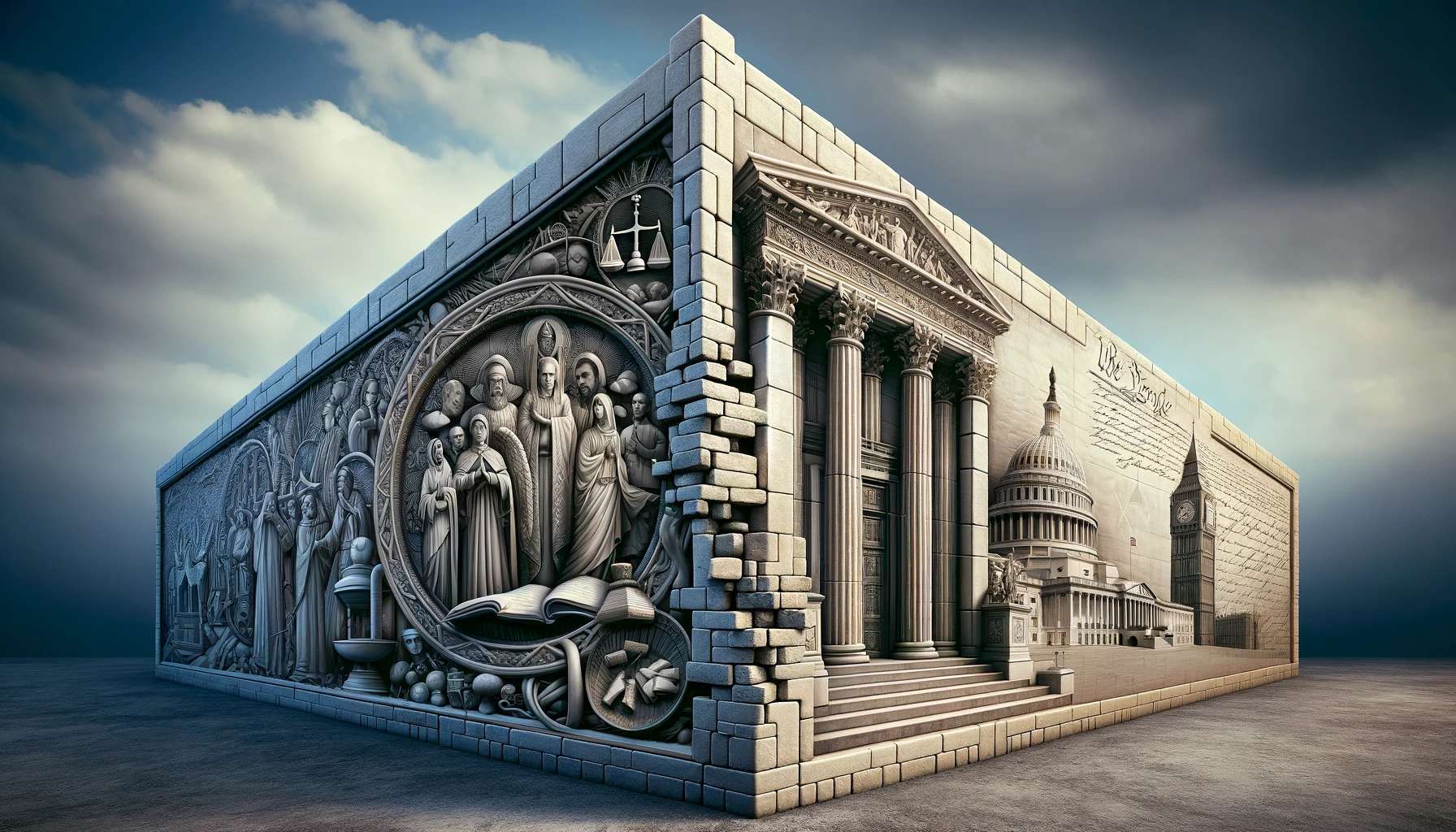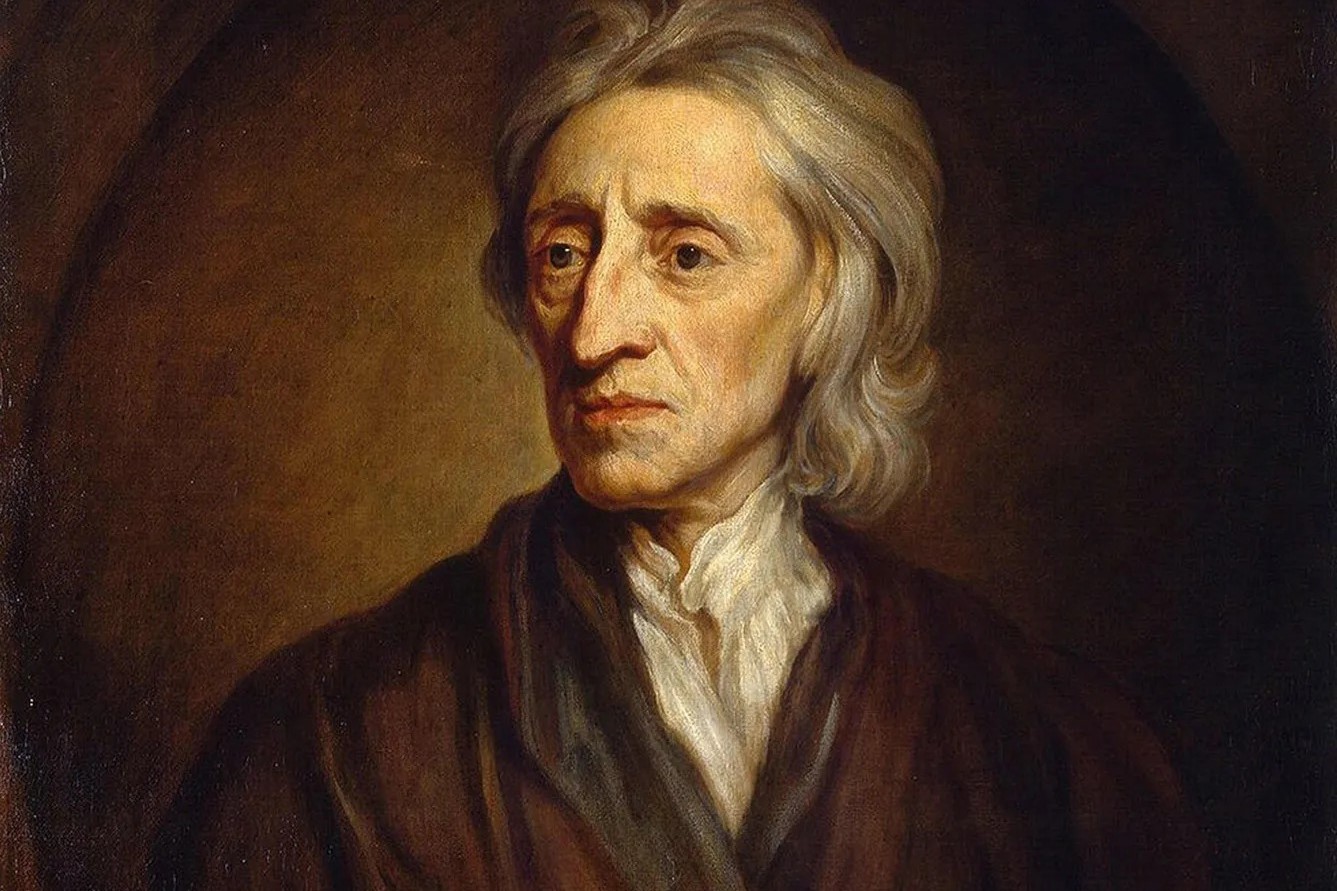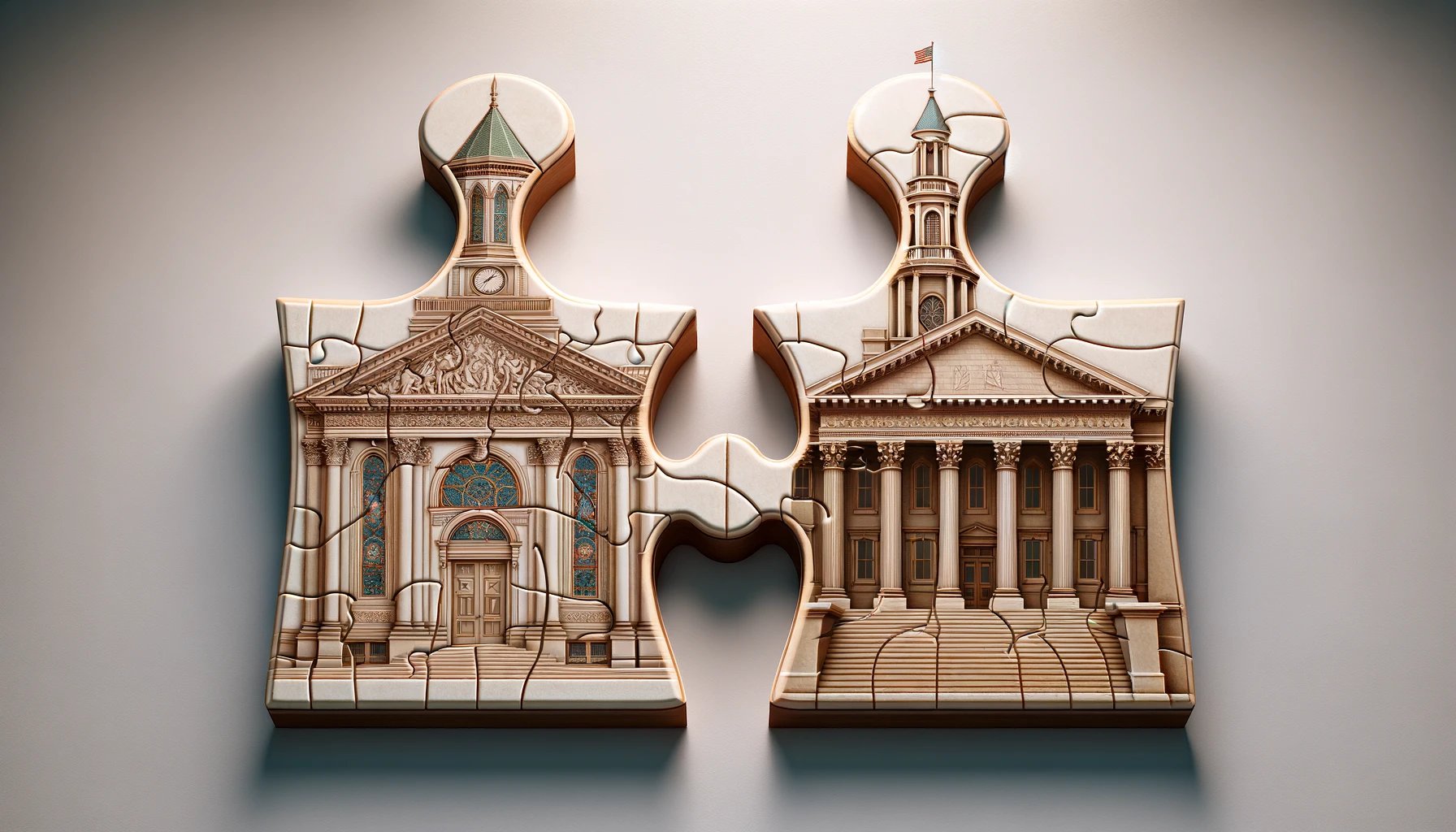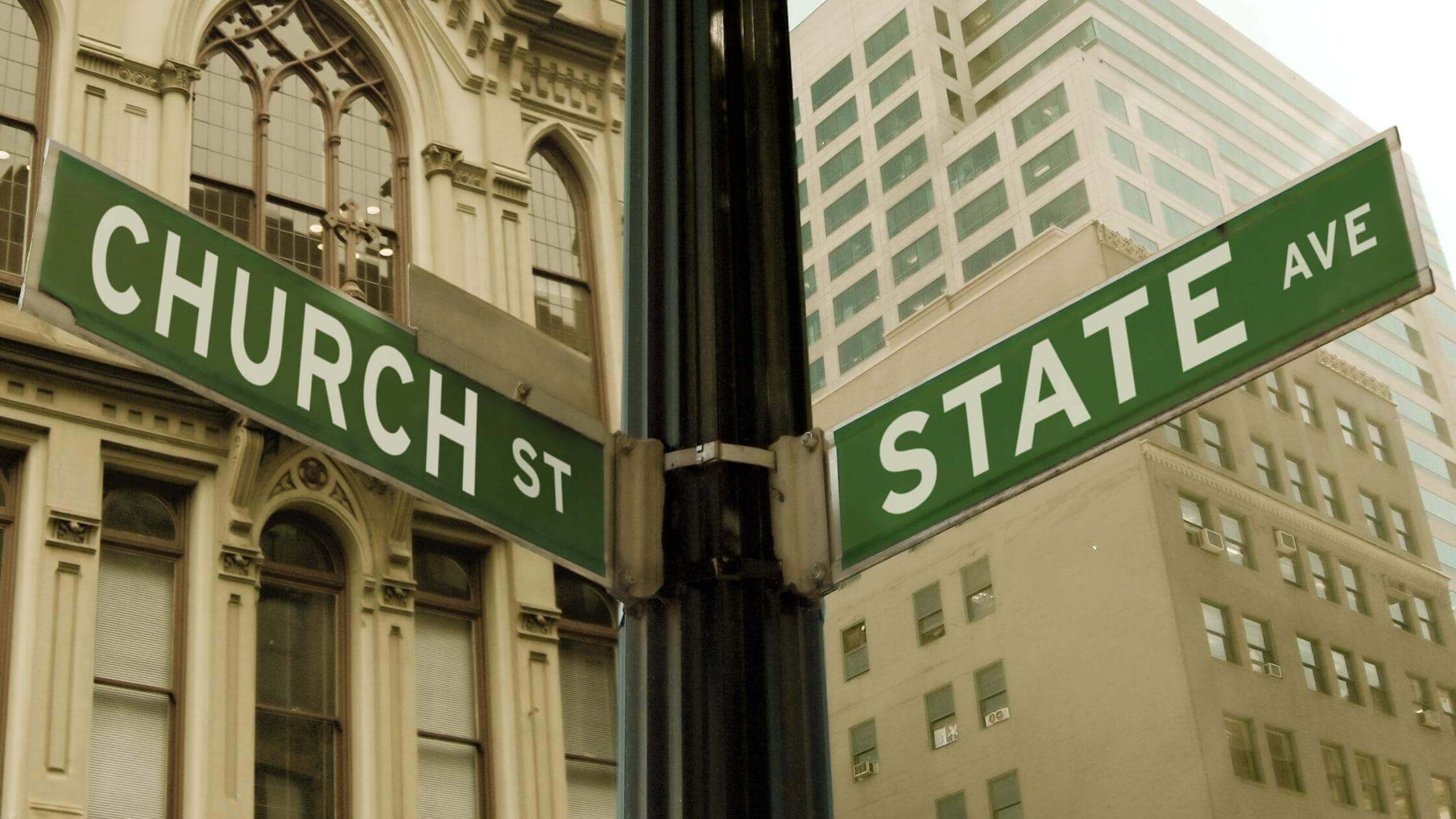Home>Theology and Spirituality>How Did Separation Of Church And State Affect The French Revolution
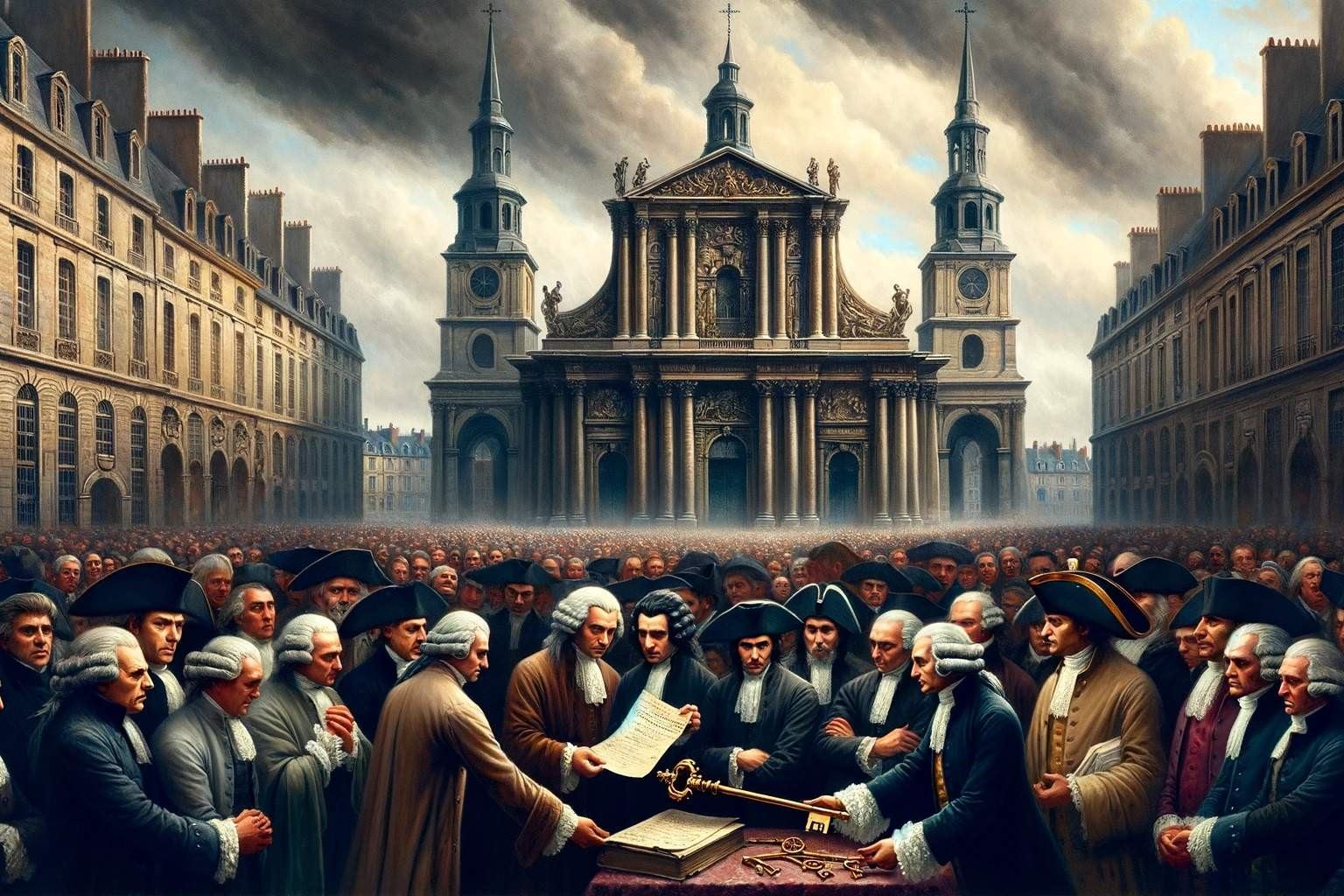

Theology and Spirituality
How Did Separation Of Church And State Affect The French Revolution
Published: February 11, 2024
Peter Smith, Editorial Director at Christian.net, combines deep insights into faith, politics, and culture to lead content creation that resonates widely. Awarded for his contributions to religious discourse, he previously headed a major organization for religious communicators, enhancing dialogue on faith's societal impacts.
Learn how the separation of church and state impacted the French Revolution and its implications for theology and spirituality. Explore the historical significance and consequences.
(Many of the links in this article redirect to a specific reviewed product. Your purchase of these products through affiliate links helps to generate commission for Christian.net, at no extra cost. Learn more)
Table of Contents
Introduction
The French Revolution, a pivotal period in history, was marked by profound social, political, and ideological upheaval. At the heart of this transformation was the separation of church and state, a concept that continues to shape modern governance and societal dynamics. Understanding the impact of this separation on the French Revolution requires delving into the historical context, the role of the Catholic Church, and the influence of Enlightenment ideas.
The events leading up to the French Revolution were characterized by a complex interplay of factors, including economic disparities, social inequality, and a growing discontent with the monarchy. Against this backdrop, the Catholic Church held immense power and influence, both as a religious institution and a significant landowner. Its close association with the monarchy and its privileged position within society made it a target for reform-minded revolutionaries.
Moreover, the Enlightenment, an intellectual movement that championed reason, individualism, and secularism, played a pivotal role in shaping the revolutionary ideals of liberty, equality, and fraternity. Enlightenment thinkers, such as Voltaire, Rousseau, and Montesquieu, challenged the traditional authority of the church and advocated for the separation of religious and governmental institutions.
As the French Revolution unfolded, the tension between the church and the revolutionary forces came to a head, leading to significant changes in the relationship between religion and the state. The impact of this separation reverberated throughout the course of the revolution, influencing the restructuring of religious institutions, the redistribution of church property, and the redefinition of the role of religion in public life.
In exploring the intersection of the separation of church and state with the French Revolution, it becomes evident that this ideological and institutional shift had far-reaching implications, shaping the trajectory of the revolution and leaving a lasting imprint on the subsequent development of French society and governance. By examining the historical context, the role of the Catholic Church, and the influence of Enlightenment ideas, we can gain a deeper understanding of the multifaceted dynamics that defined this transformative period in history.
The Role of the Catholic Church in Pre-Revolutionary France
In the years leading up to the French Revolution, the Catholic Church wielded immense power and influence, permeating nearly every aspect of French society. As the predominant religious institution, it played a central role in shaping the spiritual, social, and political fabric of pre-revolutionary France.
At the heart of the church's influence lay its extensive land holdings, which encompassed a significant portion of the country's wealth and resources. The church owned vast tracts of land, operated lucrative businesses, and collected tithes and taxes from the populace. This accumulation of wealth not only bolstered the church's economic prowess but also contributed to the stark economic disparities that fueled social unrest.
Moreover, the Catholic Church enjoyed a privileged position within the hierarchical structure of French society. It held sway over matters of morality, education, and governance, exerting its authority through a network of clergy, monastic orders, and religious institutions. The clergy, in particular, occupied a prominent role as spiritual guides, educators, and administrators, further solidifying the church's influence over the lives of ordinary citizens.
In addition to its economic and social clout, the Catholic Church maintained a close alliance with the monarchy, aligning its interests with those of the ruling elite. This symbiotic relationship between the church and the monarchy engendered a system of mutual support and reinforcement, wherein the church provided spiritual legitimacy to the monarchy's authority, and the monarchy, in turn, upheld the church's privileged position.
However, this intertwining of religious and political power also bred resentment and disillusionment among segments of the population. The church's wealth and privileges stood in stark contrast to the widespread poverty and hardship experienced by many French citizens. Furthermore, its alignment with the monarchy led to perceptions of corruption, elitism, and a lack of accountability, fueling calls for reform and restructuring.
As the grievances against the monarchy and the church mounted, the stage was set for a seismic shift in the relationship between religion and governance. The burgeoning discontent with the church's dominance and its alignment with the monarchy sowed the seeds of dissent that would ultimately culminate in the call for the separation of church and state during the French Revolution.
In essence, the Catholic Church's pervasive influence in pre-revolutionary France, characterized by its economic power, social prominence, and close ties to the monarchy, set the stage for a profound reevaluation of its role in society. This reevaluation would form a cornerstone of the revolutionary fervor that sought to dismantle the traditional structures of authority and pave the way for a new era of governance and societal organization.
The Influence of Enlightenment Ideas on the Separation of Church and State
The Enlightenment, a transformative intellectual movement that swept across Europe in the 18th century, exerted a profound influence on the ideological landscape of the French Revolution. At its core, the Enlightenment championed the principles of reason, individualism, and secularism, challenging the traditional authority of the church and advocating for the separation of religious and governmental institutions.
Enlightenment thinkers, including Voltaire, Rousseau, Montesquieu, and Diderot, espoused a vision of a society guided by rationality, scientific inquiry, and the pursuit of individual liberties. They critiqued the entrenched power of the Catholic Church and its alliance with the monarchy, highlighting the need to curtail the church's influence in matters of governance and public life. Their writings and philosophical treatises served as catalysts for reimagining the relationship between religion and the state, laying the groundwork for the eventual separation that unfolded during the French Revolution.
Central to the Enlightenment's impact was the concept of religious tolerance and freedom of thought. Enlightenment thinkers advocated for the protection of individual conscience and the dismantling of religious dogma that stifled intellectual inquiry. They envisioned a society where citizens were free to practice their faith without coercion or persecution, and where the state operated independently of religious dictates.
Moreover, the Enlightenment fostered a spirit of skepticism toward traditional institutions, including the church, and called for the application of reason and empirical evidence in shaping societal norms and governance. This emphasis on rational inquiry and secular governance directly challenged the church's monopoly on moral authority and its role in shaping public policy.
The Enlightenment's emphasis on the sovereignty of the individual and the need for a secular public sphere resonated deeply with the revolutionary fervor that swept through France. As the revolutionaries sought to dismantle the ancien régime and usher in a new era of governance, the Enlightenment's ideas provided a philosophical foundation for reconfiguring the relationship between church and state.
In essence, the Enlightenment's emphasis on reason, individual freedoms, and secular governance laid the groundwork for the separation of church and state during the French Revolution. Its influence permeated the revolutionary discourse, shaping the aspirations for a society where religious pluralism, intellectual inquiry, and civic life could flourish independently of religious hegemony.
The National Assembly and the Civil Constitution of the Clergy
The National Assembly, amidst the fervor of the French Revolution, embarked on a transformative endeavor that would redefine the relationship between the church and the state: the enactment of the Civil Constitution of the Clergy. This pivotal legislation, promulgated in 1790, sought to restructure the Catholic Church in France and assert state control over its institutional framework.
At the heart of the Civil Constitution of the Clergy lay a series of sweeping reforms aimed at subordinating the church to the authority of the state. One of the central provisions of the legislation involved the reorganization of the ecclesiastical hierarchy, wherein bishops and clergy members were to be elected by popular vote and swear an oath of loyalty to the state. This marked a radical departure from the traditional appointment of church officials by the Vatican, effectively transferring the power of ecclesiastical appointment from the papacy to the French citizenry.
Furthermore, the Civil Constitution mandated the confiscation of church lands and assets, signaling a significant reconfiguration of the church's economic and institutional influence. The state sought to assert control over the church's material resources, viewing them as a means to alleviate the financial strain on the government and to curtail the church's independent wealth and power.
The implementation of the Civil Constitution of the Clergy ignited a profound schism within French society, pitting revolutionaries and proponents of state control against staunch defenders of the church's autonomy and traditional authority. The clergy's refusal to comply with the oath of loyalty and the restructured ecclesiastical hierarchy led to a deepening rift between the revolutionary government and the Catholic Church, exacerbating the already simmering tensions between the two entities.
Moreover, the legislation elicited a mixed response from the populace, with some embracing the reforms as a necessary step toward modernization and others vehemently opposing what they perceived as an encroachment on religious freedom and the sanctity of the church. This ideological and societal divide underscored the far-reaching implications of the Civil Constitution of the Clergy, as it laid bare the complexities and conflicts inherent in the reconfiguration of the church-state relationship.
In essence, the enactment of the Civil Constitution of the Clergy by the National Assembly represented a watershed moment in the French Revolution, signaling a concerted effort to assert state control over the Catholic Church and effect a radical restructuring of its institutional and economic foundations. The legislation's reverberations would echo throughout the course of the revolution, shaping the evolving dynamics between the church and the revolutionary government and setting the stage for a profound redefinition of the church's role in French society.
The Impact of the Separation of Church and State on the French Revolution
The separation of church and state during the French Revolution engendered a seismic shift in the societal, political, and religious landscape of France. This transformative endeavor, marked by the reconfiguration of the church's role and the assertion of state control over religious institutions, yielded profound and far-reaching implications that reverberated throughout the course of the revolution.
One of the most significant impacts of the separation of church and state was the redefinition of the church's institutional and economic foundations. The enactment of the Civil Constitution of the Clergy, with its provisions for the election of clergy members and the confiscation of church lands, fundamentally altered the hierarchical structure and economic power of the Catholic Church. This restructuring not only challenged the traditional authority of the church but also reshaped the distribution of wealth and resources within French society, contributing to a reconfiguration of power dynamics and societal hierarchies.
Furthermore, the separation of church and state precipitated a profound ideological and societal divide, pitting proponents of state control against staunch defenders of the church's autonomy. This ideological schism permeated French society, fueling debates, conflicts, and resistance to the revolutionary reforms. The clash between revolutionary fervor and entrenched religious traditions underscored the deeply divisive nature of the separation and its impact on the collective consciousness of the populace.
Moreover, the separation of church and state catalyzed a reevaluation of the church's role in public life and governance. The reconfiguration of the ecclesiastical hierarchy and the assertion of state authority over religious institutions signaled a departure from the church's traditional influence in shaping public policy and moral norms. This shift laid the groundwork for the emergence of a secular public sphere, wherein the state operated independently of religious dictates, marking a pivotal moment in the evolution of French governance and societal organization.
In essence, the impact of the separation of church and state on the French Revolution was multifaceted, encompassing institutional, economic, ideological, and governance-related dimensions. This reconfiguration of the church-state relationship left an indelible imprint on the revolutionary trajectory, shaping the evolving dynamics between religion and governance and laying the groundwork for a new era of societal and political organization in post-revolutionary France.
Conclusion
The French Revolution stands as a watershed moment in history, marked by profound societal transformation and ideological upheaval. At the heart of this revolutionary fervor lay the separation of church and state, a monumental endeavor that redefined the relationship between religion and governance in France. The impact of this separation reverberated across the institutional, economic, and ideological dimensions of French society, leaving an indelible imprint on the trajectory of the revolution and the subsequent development of French governance.
The pre-revolutionary era was characterized by the pervasive influence of the Catholic Church, which wielded immense economic, social, and political power. Its close alignment with the monarchy and its privileged position within society engendered widespread discontent and calls for reform. Concurrently, the Enlightenment's emphasis on reason, individual freedoms, and secular governance provided a philosophical foundation for reimagining the church-state relationship, laying the groundwork for the eventual separation that unfolded during the revolution.
The enactment of the Civil Constitution of the Clergy by the National Assembly represented a pivotal moment in the revolution, signaling a concerted effort to assert state control over the Catholic Church and effect a radical restructuring of its institutional and economic foundations. This legislation precipitated a profound schism within French society, fueling debates, conflicts, and resistance to the revolutionary reforms, underscoring the deeply divisive nature of the separation and its impact on the collective consciousness of the populace.
The separation of church and state catalyzed a reevaluation of the church's role in public life and governance, laying the groundwork for the emergence of a secular public sphere wherein the state operated independently of religious dictates. This ideological and institutional shift had far-reaching implications, shaping the evolving dynamics between religion and governance and leaving a lasting imprint on the subsequent development of French society and governance.
In conclusion, the separation of church and state during the French Revolution represented a pivotal juncture in the reconfiguration of societal, political, and religious dynamics. Its impact, spanning institutional, economic, ideological, and governance-related dimensions, reshaped the fabric of French society and governance, leaving a profound and enduring legacy that continues to resonate in the annals of history.

